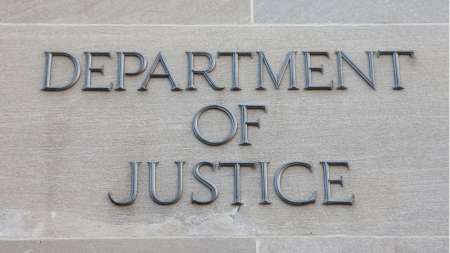The White House’s National Quantum Coordination Office is taking a 20-year view of the ongoing effort by the Federal government to create encryption technologies that will not be defeated by quantum computing technologies once quantum tech goes mainstream. […]
A bipartisan group of senators reintroduced the Artificial Intelligence (AI) in Government Act on Wednesday to improve the use of AI across the Federal government by “providing access to technical expertise and streamlining hiring within the agencies.” The bill was previously introduced by the same group of senators in September of 2018, but didn’t receive a vote in the Senate. […]
Sen. Angus King, I-Maine, and Rep. Mike Gallagher, R-Wis., announced the formal launch of the Cyberspace Solarium Commission (CSC) on May 8. The two lawmakers will lead the 14-person Commission. […]
Several senior Federal IT officials expressed a fair degree of support for hybrid multi-cloud infrastructure, and for development of artificial intelligence (AI) applications made possible by cloud infrastructure, during a panel discussion at MeriTalk’s Cloud Computing Brainstorm event on Wednesday, May 8. […]
Sean Connelly, senior cybersecurity architect at the Department of Homeland Security’s (DHS) Cybersecurity and Infrastructure Security Agency (CISA), said today that the official version of the Trusted Internet Connections (TIC) 3.0 policy to be issued later this year by the Office of Management and Budget (OMB) won’t be much different than the draft version released by OMB in late December 2018. […]
Technology Transformation Services (TTS) leader Anil Cheriyan provided a caution to government agencies in the midst of cloud migration: don’t sprint off-prem if your main rationale is saving cash up front. […]
Federal CIO Suzette Kent met with members of the National Association of State Chief Information Officers (NASCIO) today to discuss strengthening the partnerships between Federal and state governments. […]
In honor of World Password Day on May 2, OneLogin released a new report on corporate password practices. […]
In a new survey of 200 Federal executives found that Federal agencies had gaps in their business processes and that automation was very limited. […]
Data privacy took center stage in yet another Congressional hearing today, as the Senate Committee on Banking, Housing, and Urban Affairs met for a hearing on privacy rights and data collection in a digital economy. […]
While few can pronounce the Air Force CTO’s name – zero can spell it – which leads us in nicely to Frank Konieczny’s presentation on Zero Trust at Akamai’s event on Tuesday, April 30, “Zero Trust: Moving Beyond Perimeter Security.” […]
The Department of Justice announced May 3 that it, in partnership with German authorities, has charged three German nationals with operating Wall Street Market (WSM), “which was one of the world’s largest dark web marketplaces that allowed vendors to sell a wide variety of contraband,” including malware. […]
Federal government Chief Data Officers (CDOs) are bullish on the ability of a new government data law to spur IT modernization through improved data access, but they also see plenty of work that needs to be done before that vision becomes a reality. […]
The Defense Innovation Board (DIB) released a study and draft implementation plan today to help the Department of Defense (DoD) overhaul its software acquisition processes, with DoD looking to pilot some of the recommendations in fiscal year 2020 and implement on a department-wide basis in the FY2021 National Defense Authorization Act (NDAA). […]
The U.S. Patent and Trademark Office (USPTO) is requesting information on stabilizing high-priority IT applications, while simultaneously not affecting operational activities. […]
On May 16, the Department of Homeland Security (DHS) will be hosting an Industry Day in Washington, D.C., to seek more information on 5G wireless networks protections. […]
A new executive order released today by the White House establishes a rotational assignment program for Federal cybersecurity personnel, requires agencies to incorporate cybersecurity aptitude assessments into their personnel development programs, and emphasizes the adoption of the National Initiative for Cybersecurity Education (NICE) Framework in government contracts, among other measures. […]
Now that the Federal government’s embrace of cloud technologies has taken firm hold across wide swaths of the enterprise, it’s time to get ready to reap the rewards of that investment. […]
The General Services Administration (GSA) outlined ten tips for Federal agencies to follow in their efforts to migrate to cloud-based systems as part of a cloud smart push. […]
Sixty-one percent of IT security professionals report experiencing a data breach at their current employer, according to an April 29 report from McAfee. […]
A software security framework document issued this week by trade group BSA | The Software Alliance drew the endorsement of key House and Senate lawmakers involved in cybersecurity issues. […]
The National Institute of Standards and Technology (NIST) is in the process of creating a plan for developing standards and tools to support artificial technologies and are currently seeking information on helping NIST “understand the current state, plans, challenges, and opportunities regarding the development and availability of AI technical standards.” […]
According to a new survey, a majority of organizations keep at least some of their mission-critical apps in the cloud, signaling a shift in how enterprises place their trust in cloud services. […]
The Government Accountability Office (GAO) recommended that the Transportation Security Administration (TSA) revise its pipeline security, cybersecurity guidelines, and risk assessment methodology, and build a more robust cybersecurity workforce to enhance its pipeline security program. […]
The U.S. Air Force (USAF) is seeking ways to implement IT Transformation by leveraging cloud and mobile to drive improvements in its cybersecurity investments. […]
Panelists representing consumer privacy perspectives discussed an array of strategies for approaching data privacy protection laws at a hearing before the Senate Commerce, Science, and Transportation Committee today. […]
On the Hill, Cybersecurity and Infrastructure Security Agency Chris Krebs made the case for his agency’s FY2020 $3.17 billion budget request – which represents a cut over FY2019 funding levels – during an April 30 House Committee on Homeland Security Subcommittee on Cybersecurity, Infrastructure Protection, and Innovation hearing. In a rare move, there was strong bipartisan support for increasing the funding request and providing more funding to help improve the nation’s cybersecurity posture. […]
Senators and panelists across government and industry came to agreements, but also butted heads, about steps to take in strengthening Internet of Things (IoT) cybersecurity at an April 30 Senate Commerce, Science, and Transportation Security Subcommittee hearing. […]
Across multiple cybersecurity programs and efforts, the Federal government is prioritizing protection for its high value assets (HVAs), said speakers at ATARC’s Government Information Technology Executive Council (GITEC) conference on Monday, April 29. […]
On Monday, Senator Bob Menendez, D-N.J., announced a bill to provide funding to states to safeguard voting systems from cyberattacks. […]




























